Iowa tightens foreign-owned land law, but misses farmers' main concern: access to land
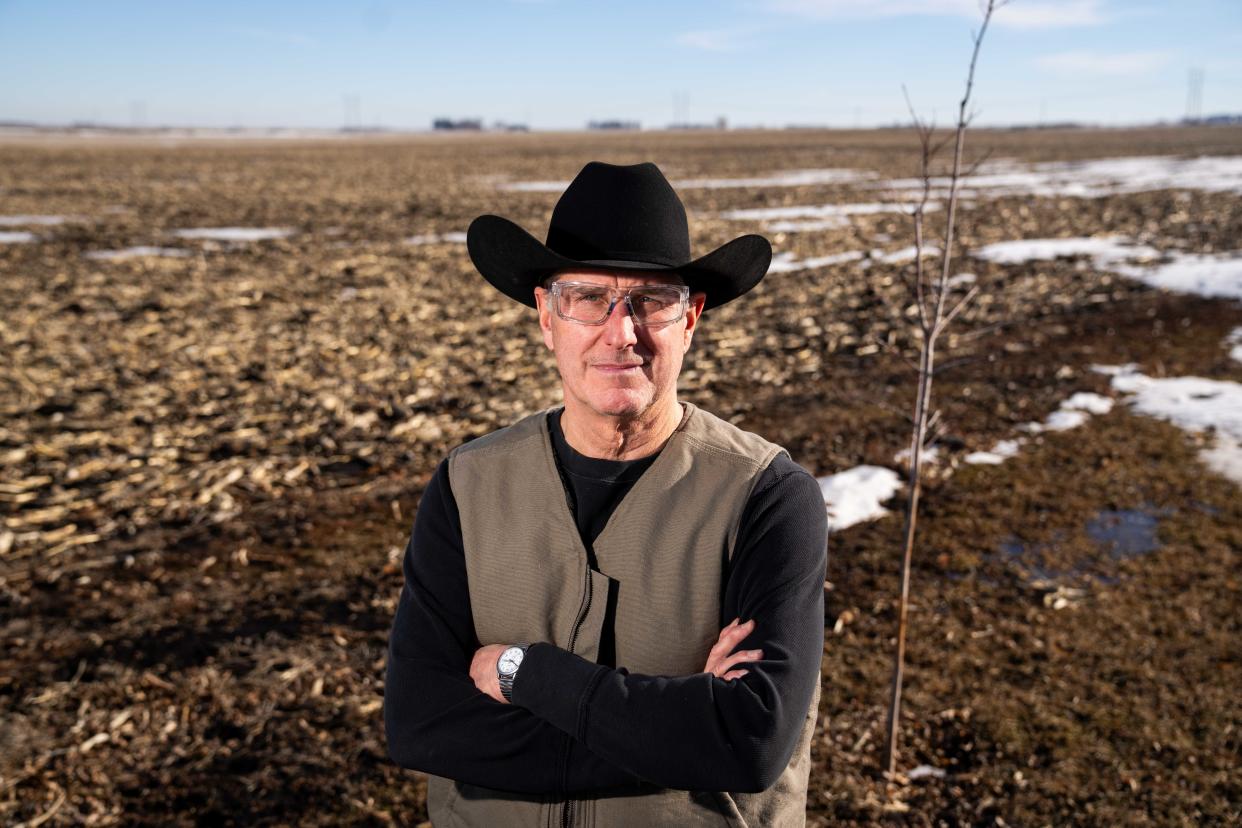
Iowa Rep. Mike Sexton says no foreign residents, companies or groups should own any of Iowa’s rich farmland.
“If they do, they’re breaking the law,” says Sexton, a northwest Iowa Republican.
The Iowa Legislature this year didn't go quite that far when it tightened Iowa’s already restrictive law on foreign ownership of farmland. It increased reporting requirements, boosted penalties for violations and gave the attorney general’s office subpoena powers to investigate possible violations.
The action came as U.S. and Iowa politicians warn that China and other foreign enemies are gobbling up the country’s farmland. But foreign agricultural land holdings in Iowa are less than 2%, most of it by U.S. allies like Canada and Italy. China's share is only a fraction of that amount.
More: Spy fears spark flurry of proposed laws aiming to ban Chinese land ownership
Some Iowans, Sexton included, believe the greater threat is big-money investors — from capital investment funds to tech billionaires, sports celebrities and churches — that are helping to drive Iowa farmland values to historic highs, further pushing ownership out of reach of Iowa farmers.
“My farming buddies are mostly frustrated by big American corporations” and investors snapping up Iowa farmland, not foreign buyers, acknowledged Sexton, who raises sheep near Rockwell City.
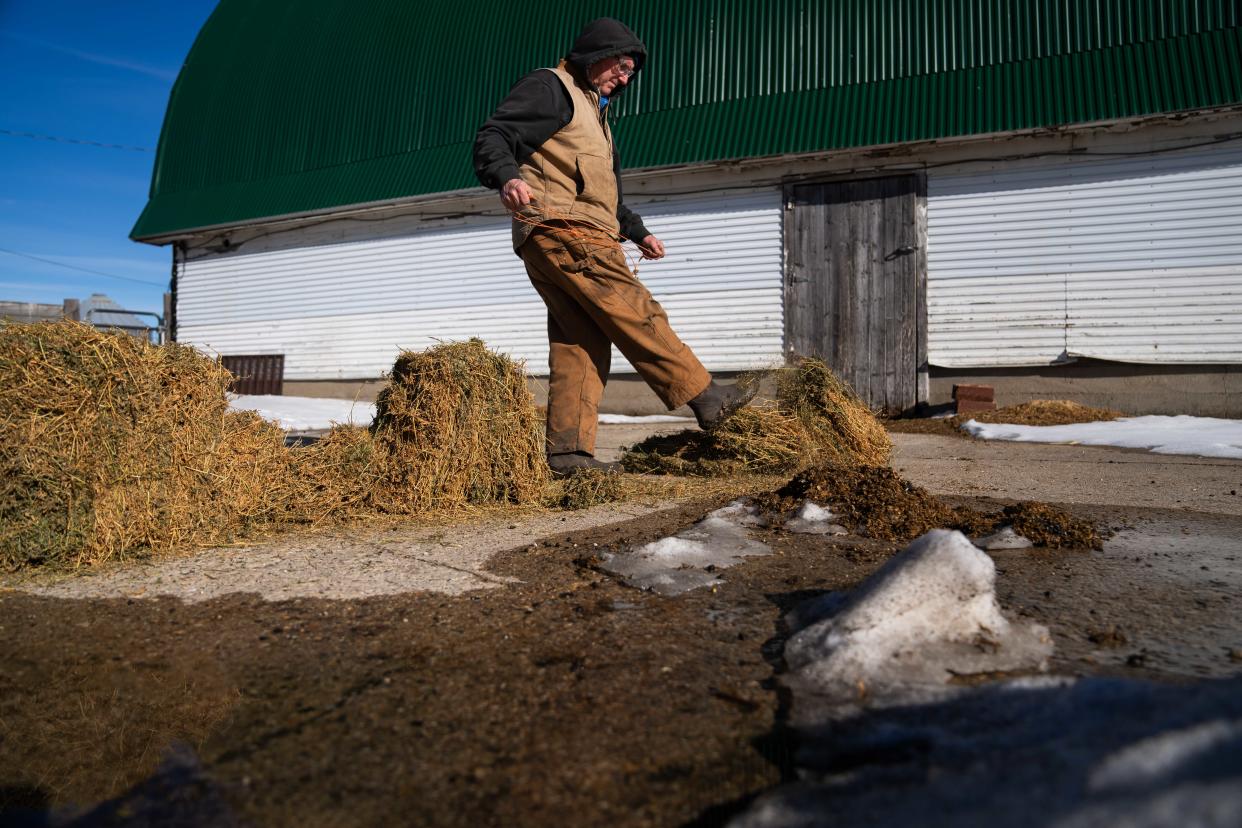
With average values spiking 420% over two decades, Iowa farmland has become increasingly attractive.
More: Where are Iowa farmland values going after 2 years of record highs? Here's the data, outlook:
Even though as of 2022, 75% of Iowa farmland was owned by Iowans, 20% — about 6 million acres — belong to people who lived outside the state, up from 13% five years earlier, an Iowa State University survey shows. And experts expect a massive wave of ownership changes over the next couple of decades because roughly two-thirds of Iowa farmland — about 22 million acres — is owned by people 65 and older.
State Rep. J.D. Scholten, a northwest Iowa Democrat, worries that farmland ownership is becoming consolidated, as have fertilizer manufacturing, meatpacking and other ag industries.
Over a decade, the number of farms in Iowa with 2,000 or more acres has grown 42%, the 2022 U.S. Agriculture Census, released this year, shows.
“It’s just a matter of time until we see corporations buying up Iowa farmland and pretty much making farmers serfs,” Scholten said.
Cropland not where foreign ownership is highest
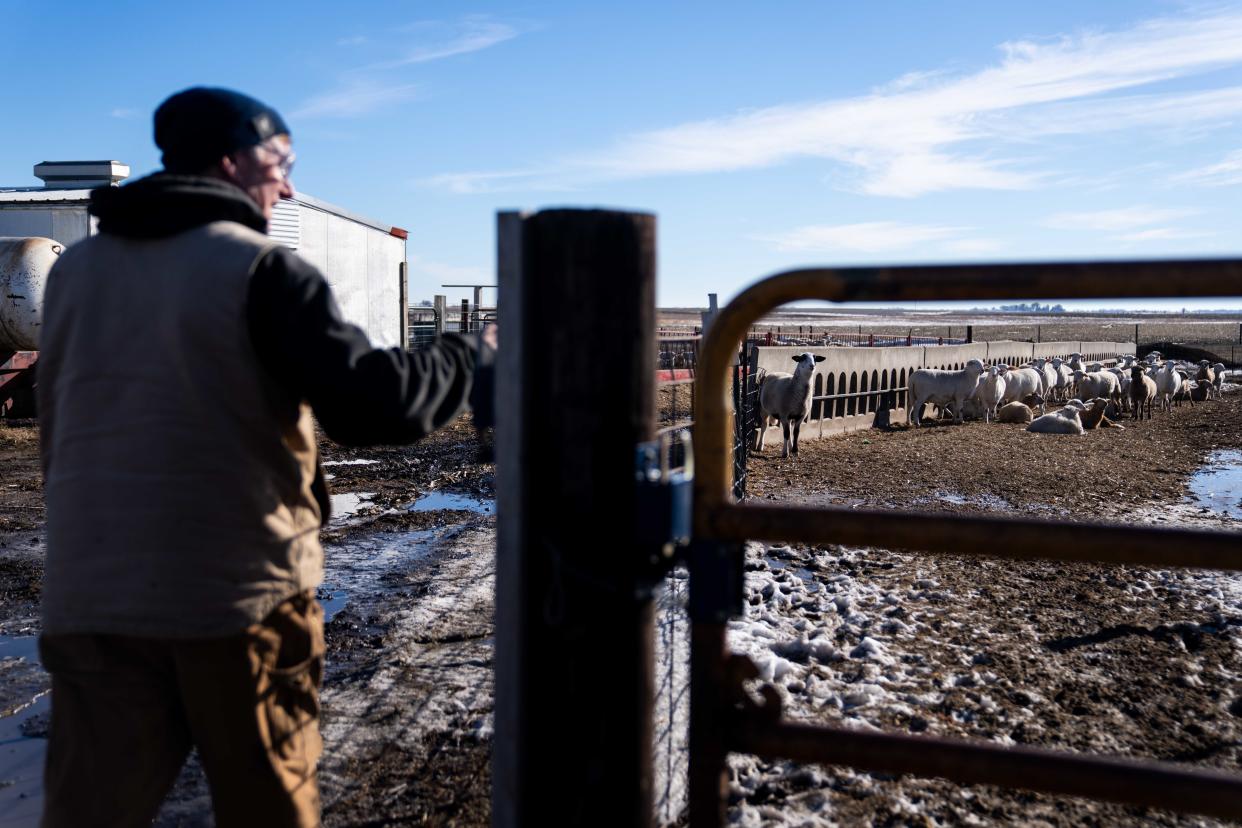
Where foreign land ownership factors most in Iowa is in wind and solar energy production, rather than crop and livestock production. In 2021, renewable energy companies held about 90% of the state's foreign-held land — about 453,000 of nearly 508,000 acres — through leases that are at least a decade long, according to 2021 U.S. Department of Agriculture data, the most recent information about how Iowa land is used.
Foreign agricultural holdings include land that was acquired before 1980, when many of the state’s original 1970s restrictions on foreign ownership took effect. And the law exempts foreign-owned land purchased for research and, in some cases, development, limiting purchases to 320 acres that must be converted to their specified use within five years.
Ag land holdings include those by foreign companies that do businesses in Iowa, like AstraZeneca, the United Kingdom pharmaceutical, seed and crop protection conglomerate; Germany’s Lehigh Cement; Ajinomoto Heartland, a Japanese company that makes animal food ingredients in Eddyville; and SSAB Iowa, a Swedish steel plate maker previously named IPSCO, USDA data shows.
More: Iowa pork producers' losses worst in 25 years amid high costs and declining demand
In 2022, Iowa had nearly 514,000 foreign-held acres, about 6,500 acres, or 1.3%, more, than in 2021, the USDA reported. Canada had the largest holdings in Iowa at nearly 200,000 acres; Italy followed at 104,400 acres; Germany, 17,000; the United Kingdom, 15,000; and all other countries, less than 184,000 acres.
Iowa’s only Chinese holding was 265 acres owned by Syngenta, a seed and crop protection giant, in Boone County, according to the USDA report. ChemChina purchased the Switzerland-based company in 2017. It was later folded into Sinochem Holdings.
Altogether, Iowa’s foreign ag land holdings were valued at $2.04 billion in 2021, USDA data shows.
Last year, Arkansas ordered Syngenta to divest of 160 acres within two years and pay a $280,000 civil penalty after passing new restrictions barring U.S. adversaries from owning farmland or real property.
"They're what I refer to as the big four — China, Iran, North Korea and Russia," said Micah Brown, a National Agricultural Law Center attorney.
Arkansas, Louisiana and Florida are among the few states that have placed limits, as well, on foreign ownership of real property, which could include businesses like meatpacking, manufacturing and other facilities, Brown said.
Scholten calls the changes to Iowa’s law — the first bill the Legislature sent to Gov. Kim Reynolds this year — the “gold standard” for preventing foreign ownership of Iowa farmland.
And he said the attorney general’s new subpoena powers as well as civil penalties for reporting violations better enable prosecution.
“We haven’t seen any enforcement in five years or more,” he said.
But more work is needed to restrict venture capitalists and other investors from buying Iowa farmland, Scholten said. “Foreign ownership is a big deal, but as big a deal is Wall Street buying up all the farms,” he said.
Iowa has laws restricting corporate ownership but they have several exemptions, said Jennifer Zwagerman, director of Drake University's Agricultural Law Center. "It is not as restrictive as people might think it is or want it to be," Zwagerman said. "The real need is to focus more on investment and corporate ownership at a domestic level."
'There’s a lot of misinformation,' says renewable energy proponent worried about scapegoating
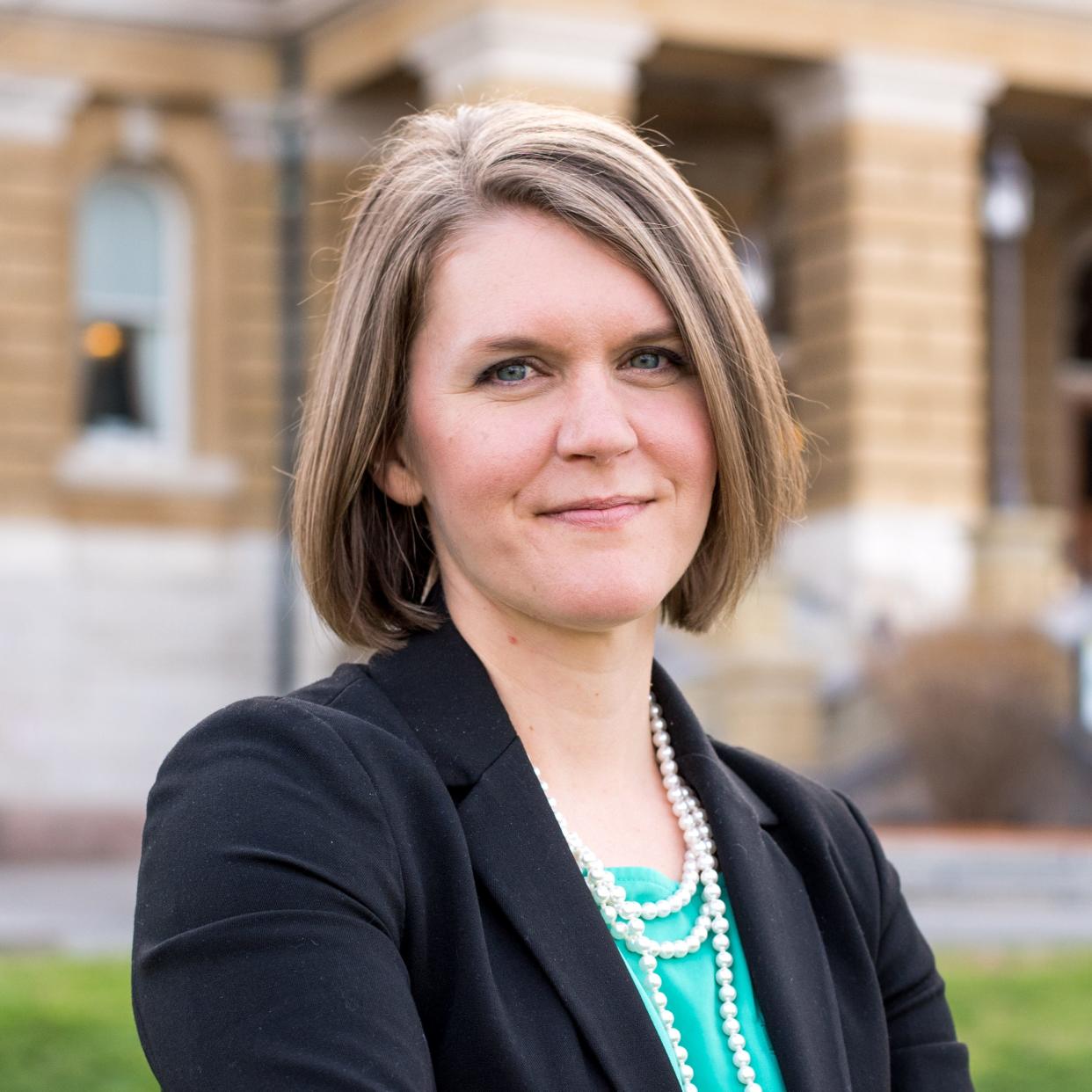
Even though foreign companies have 453,000 Iowa acres under lease, it’s unclear how much land has been used to build renewable energy projects, the USDA says, with some yet to be developed. Iowa, for example, has about four dozen wind, solar and battery projects awaiting approval to connect to the grid, according to MISO, the independent group that manages the transmission network.
Brown said many companies use long-term leases to "lock up a lot of land" so competitors don't have access.
Proponents point out that land with wind turbines continues to be farmed. That's also true with solar installations: Farmers graze livestock and grow vegetable around the panels. The renewable energy projects also generate revenue for farmers and supply taxes for cities, counties and other local governments.
Still, opponents complain the projects drive up rent for farmland or take it out of production. The 2022 U.S. ag census showed Iowa had lost nearly 586,000 farm acres in the five years since 2017. Over 20 years, Iowa has lost 1.7 million acres of ag land.
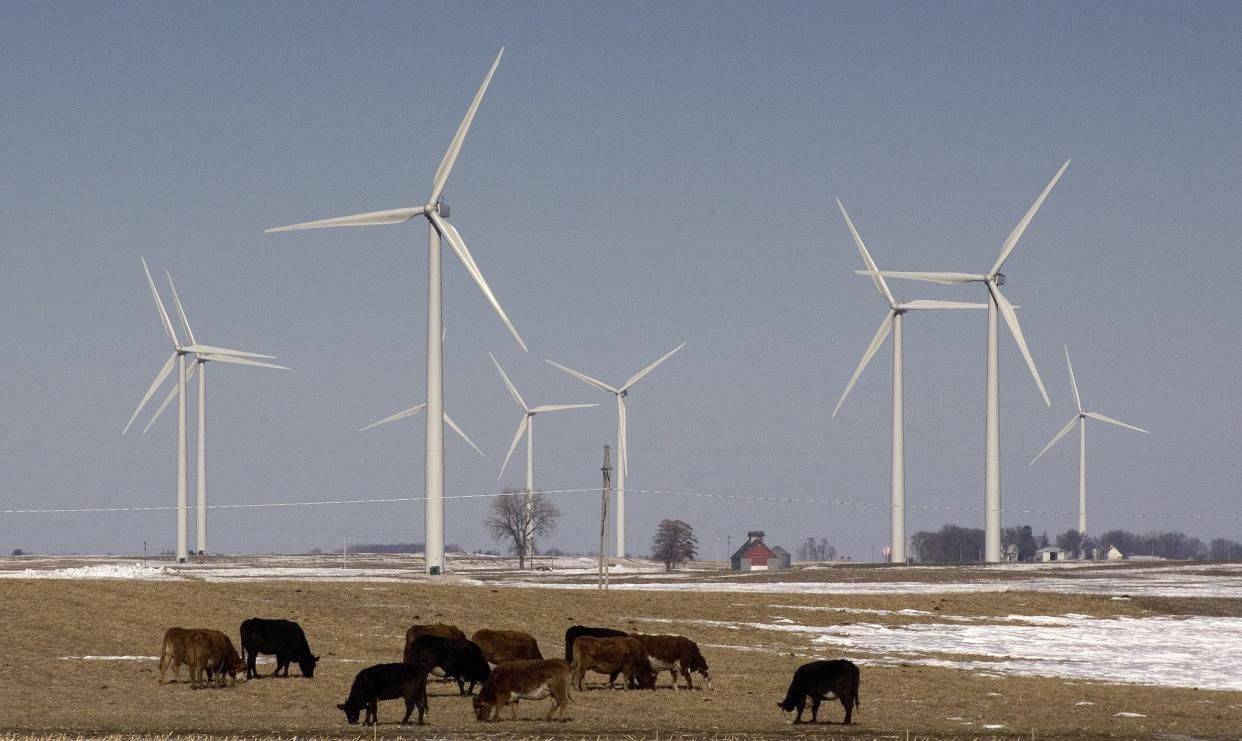
Kerri Johannsen, the Iowa Environmental Council’s energy program director, said urban sprawl, however, is more likely responsible for chewing up ag land than renewable energy installations. Studies have shown that to fully power Iowa with renewable energy would require about 1% of the state’s land for solar installations, she said.
“Spread across the state, that’s not a huge impact to land access,” Johannsen said.
Still, she worries that concerns over foreign companies holding leases on Iowa farmland could become another reason for opposition to wind, solar and other renewable energy projects. About a dozen Iowa counties have restricted renewable energy projects amid growing concern over alleged detriments to health and economic development.
Two years ago, Iowa lawmakers considered a bill that would restrict where solar projects could be developed statewide, proposing to limit them to lower-yielding land.
“There’s a lot of misinformation that gets injected into those discussions,” Johannsen said, adding, “We don’t want foreign ownership to add to that fear factor.
“We all like our cell phones and laptops,” she said, adding that businesses locating in Iowa are looking for clean energy. “We need to have a conversation about how we balance those needs.”
Iowa farmers struggling to afford needed land
The Iowa Farmers Union, the Iowa Soybean Association and other large Iowa ag groups say access to land is a top issue for members.
Availability and affordability are the main barriers, experts say. The average price of Iowa farmland reached $11,835 an acre last year, an ISU survey shows, the second year in a row that values set a record high. They have climbed 63% compared to five years ago, when prices dipped during an ag downturn.
Auctions of prime farmland in recent years have snagged landowners upward of $30,000 an acre.
“It’s never been easy to start farming,” said Iowa Agriculture Secretary Mike Naig, whose family farms in northwest Iowa. “That’s something that could be said forever in Iowa."
More: Farmer's free-ranging cattle wreak havoc in northeast Iowa community, neighbors say
But, he added, “High land costs, high capital costs, high interest rates can make it very daunting.”
In addition to land costs, tractors, combines and other farm equipment can cost hundreds of thousands of dollars. And prices for seed, fertilizer and other supplies needed to grow a crop have climbed in recent years.
The state and federal governments have adopted incentives — from tax credits to low-interest loans — designed to overcome some of the barriers by encouraging farmland owners to rent or sell acreage to beginning and disadvantaged growers and military veterans, Naig said.
But Sexton, the northwest Iowa farmer, said Reynolds-championed tax breaks that Iowa lawmakers passed last year have undercut those incentives. The law enables retired farmers to choose either to avoid taxes from renting land or on profits from selling it.
“We've reduced the incentive for retiring farmers to want to be a part of that young farmer program,” Sexton said. “We need to look at that … so we can get retiring farmers to be interested in helping young farmers.”
Despite new restrictions on foreign land ownership, proposed law could grant exceptions
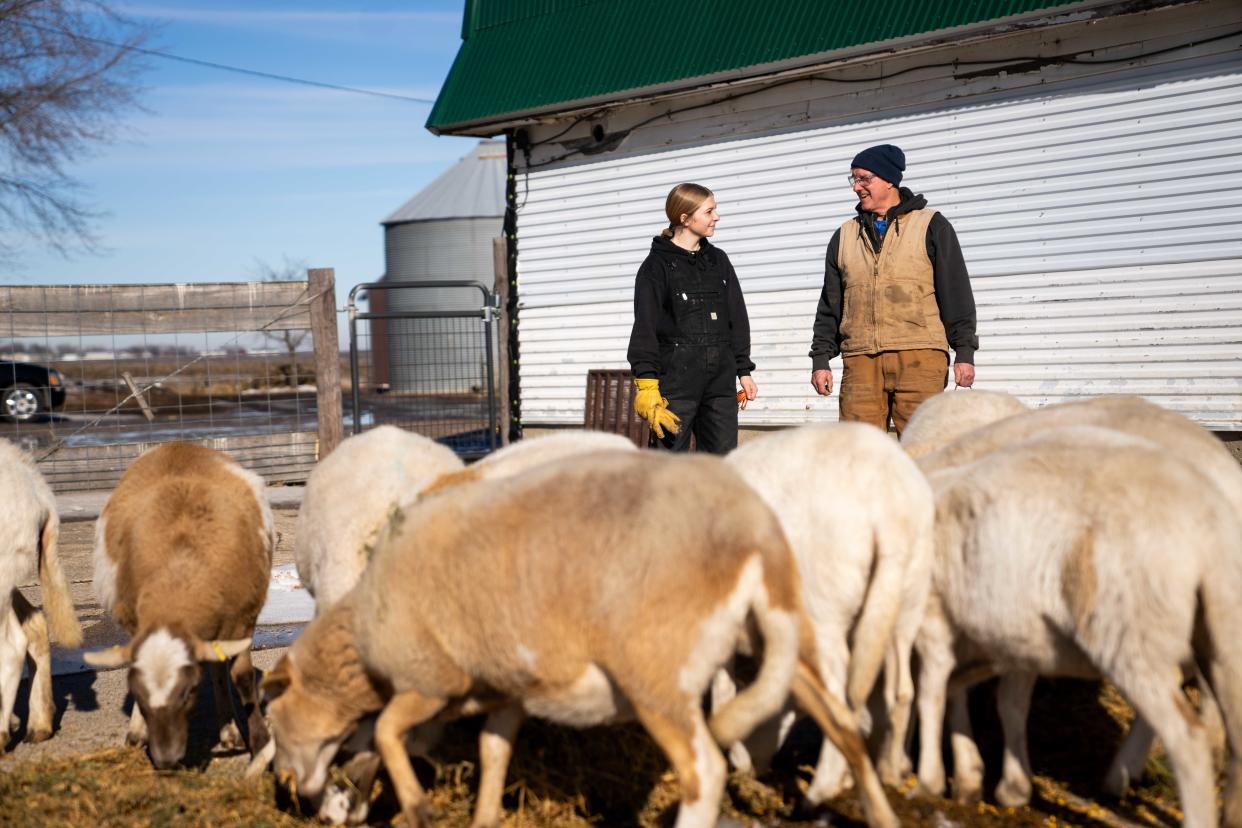
At the same time as Iowa has tightened its law around foreign ownership, lawmakers are considering a bill that would allow non-U.S. companies to buy 1,000 acres or more of farmland if they’re investing at least $1 billion in a manufacturing, bioscience or research facility.
A legislative analysis shows a project meeting the requirements would receive $92.7 million in state tax credits and refunds over five years.
Scholten said he’s one of four representatives to vote against the bill. “We need to grow our economy, but at what expense?” he said.
Granting foreign companies “something so open ended,” said Aaron Lehman, president of the Iowa Farmers Union board, is very concerning to members, especially when "we’re already dealing with a lot of land access issues.”
“If we are going to make changes to improve land access, it should be for our young and beginning farmers,” said Lehman, who farms near Alleman in central Iowa.
More: Can Cumming keep its small-town growth amid metro Des Moines' hustle?
Naig said Iowa has hit the right balance between protecting Iowa farmland, allowing room for economic development and letting farmers get the highest dollar possible for their land ― money they often use to fund their retirements.
“We don’t want foreign entities competing with Iowa farmers when it comes to actual production,” he said. “But the law envisions or allows that, yes, you can have … direct foreign investment in this state.”
“And we have many great companies that are foreign owned,” he added. “We want to continue to say that the state of Iowa is open for business. But I think it's wise to have limits. That’s just smart."
Farmer sees lack of land access for new growers as existential threat to Iowa agriculture
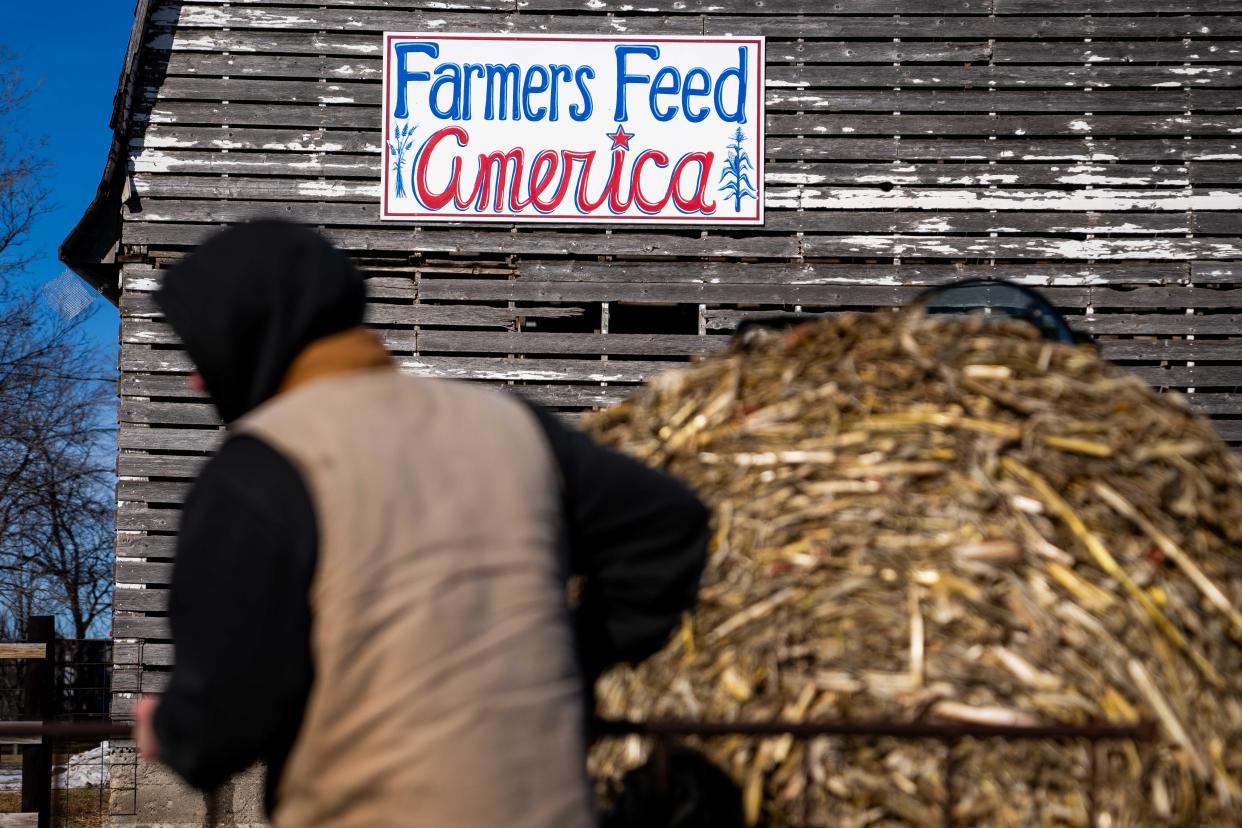
Jacob Bolson is looking forward to his fourth year of farming near Hubbard in north-central Iowa. But getting land was a battle.
He thought he had a line on a couple of farms, but the owners instead rented their land to well-established operations.
“Dollar for dollar, it’s difficult, if not impossible, to compete against well-capitalized, multi-generational operations,” said Bolson, who works full-time in the ag industry and farms part-time.
More: West Des Moines crop insurance company buys a California counterpart
Farmers with large operations can offer to pay higher rents to landowners because they’re able to spread machinery and other expenses over more acres.
In 2020, Bolson connected with a Washington state woman to rent land she owns in Iowa, using a Practical Farmers of Iowa program. The landowner qualified for the state’s beginning farm tax credit, but applying was extremely complex, said Bolson, who worked with farmers in high school and college and more recently with his father-in-law, a farmer who lives nearby.
“It’s a daunting, laborious process,” he said, adding that his landlady almost didn’t qualify for the tax credit because of a small technical discrepancy in his initial application.
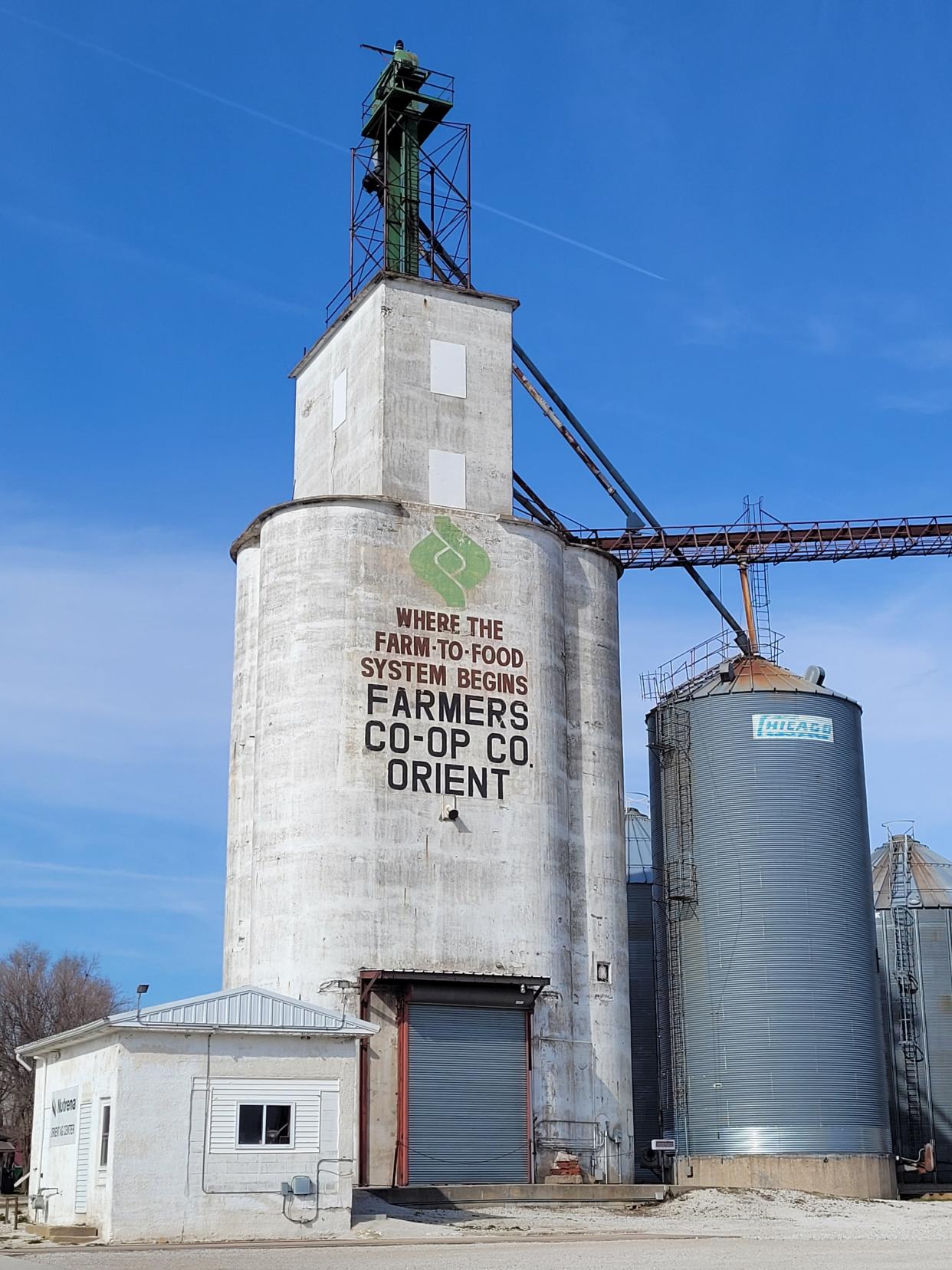
Bolson said he sees few beginning farmers who are able to buy Iowa farmland, even with low-interest loans. At the state average value, for example, it would cost $1.4 million to buy 120 acres, about one-third the size of an average Iowa farm.
“It just doesn’t cash flow,” Bolson said, given prices for corn and soybeans, Iowa’s two largest crops.
Even established farmers struggle to buy Iowa farmland, said Sexton, 62, who lost land he rented for 40 years when his uncle died and the family's Century Farm was sold. Iowa farmers bought two parcels and an investor group, the third.
“I couldn’t afford it,” Sexton said. “I don’t blame the grandchildren. None of them farm. But it creates a problem for those of us trying to farm the ground.”
Drake University's Zwagerman said policymakers need to make it more attractive for landowners to keep "farmland farmland," using tools like conservation easements that limit land's use to farming, a practice that also lowers land's cost. "We're losing farmland like crazy," she said. "Restrictions alone on who owns it isn't enough."
If legislators don't take action on land access for beginning farmers, rural Iowa will die, Bolson said.
Since 1940, the state's non-urban areas have lost 280,000 residents, an ISU analysis shows. And in over a decade, 69 of Iowa’s 99 counties lost population, the 2020 U.S. Census found.
“For the sake of small-town America, we’ve got to figure out how to get more beginning farmers in the countryside,” Bolson said. “If we don’t, the degradation of rural America is going to accelerate to levels that we have never seen before.”
Donnelle Eller covers agriculture, the environment and energy for the Register. Reach her at deller@registermedia.com or 515-284-8457.
This article originally appeared on Des Moines Register: Iowa restricts foreign-owned land but misses bigger threat, farmers say
